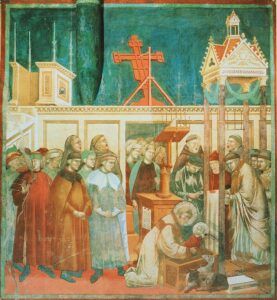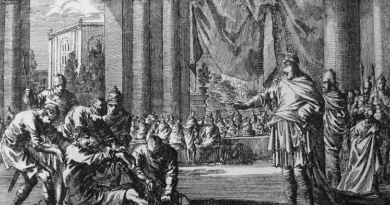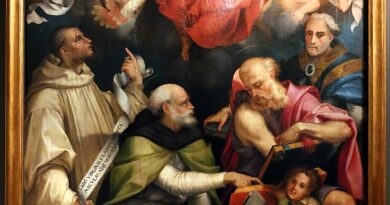Solemnity of Christmas
Massimo Palombella

A set of people and situations surround the birth of Jesus, people and situations where we can, in some way, recognise ourselves.
Joseph’s fear before Mary expecting a child and his struggle to make a serious discernment as a ‘just man’ can also be my fear today before a new situation and my struggle to make a serious discernment.
The implicit empiricism of Zechariah who understands everything, deciding the possible and the impossible in life, only and exclusively in relation to his situation, may be my great temptation today.
The ‘great fright’ of the shepherds at the sight of the angel and, despite this, their decision to go all the way to Bethlehem, may be today what is required of me, namely being able to decide and move despite my being frightened and destabilised.
Herod’s fear of losing power and his becoming violent, can be my own fear and violence today.
The desire of the Magi, their healthy obstinacy in following the star, can be my desire and obstinacy today.
The children unjustly killed by Herod can today be a reminder of the pain of the injustices suffered and the gratuitous mistreatment received.
The flight to Egypt, the fatigue of living in a new reality, can be today my own need to change, my own fatigue of living or starting over in a new situation.
In that defenceless, weak and needy child that we celebrate at Christmas, there is my fear, my fatigue, my temptation, my destabilisation, my violence, there are my desires, my stubbornness and my determination, the injustice and the mistreatment…
That child has taken on everything. He has taken everything upon Himself. In this way He has healed everything, everything He has ‘redeemed’.
In Him nothing is an object of shame, in Him nothing is lost, in Him all our failures, all our inabilities, all our destabilisation, all our pain… Everything finds a home, a place, a meaning.
He, small, weak and defenceless, awaits us with our being small, weak and defenceless to make us taste in Him nothing but “life in abundance”.
The entrance antiphon, the Introit of the Mass of the Lord’s Christmas Day, is taken from Chapter IX of the Book of the Prophet Isaiah (Is 9:6) with the following text:
“Puer natus est nobis, et filius datus est nobis:
cuius imperium super humerum eius et vocabitur nomen eius, magni consilii Angelus.”
(Unto us a child is born, unto us a son is given.
Dominion is on his shoulder and his name shall be called the Angel of Great Counse).
The attached music, in Gregorian Chant, is taken from the Graduale Triplex published in Solesmes in 1979. The interpretation is by the “Coro De Monjes Del Monasterio De Silos” conducted by Ismael Fernandez De La Cuesta. The musical track can be found on the CD “Canto Gregoriano” published by EMI Music Spain in 1973.
It is interesting to compare this antiphon of the Roman Rite with the Ambrosian Rite where at the Christmas Day Mass the entrance antiphon – the Ingressa – is taken from Chapter IX of the Book of the Prophet Isaiah (Is 9:2. 6) and from Chapter I of the Gospel of Luke (Lk 1:33) with the following text:
“Lux fulgebit hodie super nos: quia natus est nobis Dominus:
et vocabitur Admirabilis, Deus, Princeps pacis, Pater futuri saeculi:
cujus regni non erit finis.”
(Radiant light will shine upon us today, for the Lord is born unto us.
He shall be called Wonderful God, Prince of Peace, Father of the world to come.
His reign shall have no end.).
In the Roman Rite, this text is placed at the Introit of the Mass of the Dawn of the Lord’s Christmas.
As far as the Ambrosian Rite is concerned, the attached music, in Ambrosian Chant, is taken from the Antiphonale Missarum Iuxta Ritum Sanctæ Ecclesiæ Mediolanensis, published in Rome in 1935. The interpretation is by the Musical Chapel of the Duomo of Milan at the Pontifical Celebration on 25 December 2021.
Merry Christmas and heartfelt greetings.


